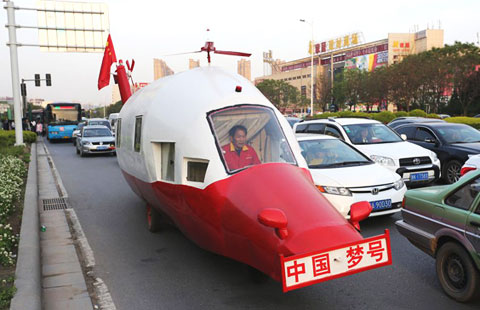
More than 100,000 victims now demand 2,500 euros each from oil trader Trafigura
Andoudoua Blonde said he will have to live forever with blindness in one eye, headaches and skin rashes caused by a 2006 dumping of toxic waste near his farm in Cote d'Ivoire.
Like thousands of others, he said he still has not received any compensation for his suffering from the European multinational oil trader Trafigura, which offloaded the materials at the port of Abidjan, the West African nation's capital.
|
Siaka Coulibaly, a resident of the village of Djibi near Abidjan, was blinded after the Probo Koala ship dumped toxic waste in Cote d'Ivoire in 2006. The 528 cubic meters of spent caustic soda, oil residues and water killed 17 people and made thousands sick. Issouf Sanogo / Agence France-Presse |
"I cannot bear to tell myself that something so serious could happen without reparations," said the 42-year-old Blonde. "Giving up now would be too hard."
While Trafigura has paid out about 185 million euros ($200 million) in settlements, much of it to the government, according to 2007 presidential records, victims' advocates consider it a ridiculously small amount, given the tens of thousands of people hurt. Many victims like Blonde said they have received nothing at all.
Other funds ended up in the hands of scammers who in some cases were aided by the police, according to humanitarian sources.
Now a group of more than 100,000 Ivorian victims are making one last effort in the form of a lawsuit against Trafigura in a Dutch court, demanding compensation and a cleanup.
The suit seeks 2,500 euros each, a total of nearly 280 million euros, for 110,937 victims.
In August 2006, toxic residue on board the Panamanian-registered Probo Koala freighter was sent to Abidjan, where it was later dumped at several sites around the city.
The 528 cubic meters of spent caustic soda, oil residues and water subsequently killed 17 people and poisoned tens of thousands, Ivorian judges said.
Trafigura, which declined an interview request, "strenuously maintains that it did nothing wrong and its staff acted in an appropriate manner", according to its website.
Trafigura, a Swiss-Dutch company, reached out-of-court settlements for 33 million euros in 2009 and 152 million euros in 2007 in Britain and Cote d'Ivoire.
"We warned that these agreements should never have been signed with Trafigura. It was too little," said Willy Neth, secretary-general of the Ivorian League of Human Rights.
The 152 million euros were paid to the government, and a quarter of this money was to go to the victims. But Neth said that the victims did not receive all they were owed.
"Less than half of the real victims were counted," said Neth, adding that Blonde's injuries went unidentified.
It is not clear how many people have received money because the government stopped making payments in 2009 after accusations surfaced of identity theft, according to a 2012 report from Greenpeace and Amnesty International.
Scammers sensing a potential jackpot turned to fraud to get at the money. Some victims' associations falsely pumped up their numbers or engaged in identity theft to get more cash, sometimes with the help of police, according to several humanitarian sources.
"It was at times grotesque. Someone with malaria came and said he was contaminated by the waste," said a medical source who requested anonymity.
Four people who claimed to represent a group of victims were convicted in January of taking 7 million euros from Trafigura. The thieves got 20 years in prison, but have yet to be locked up.
(China Daily 04/23/2015 page10)








